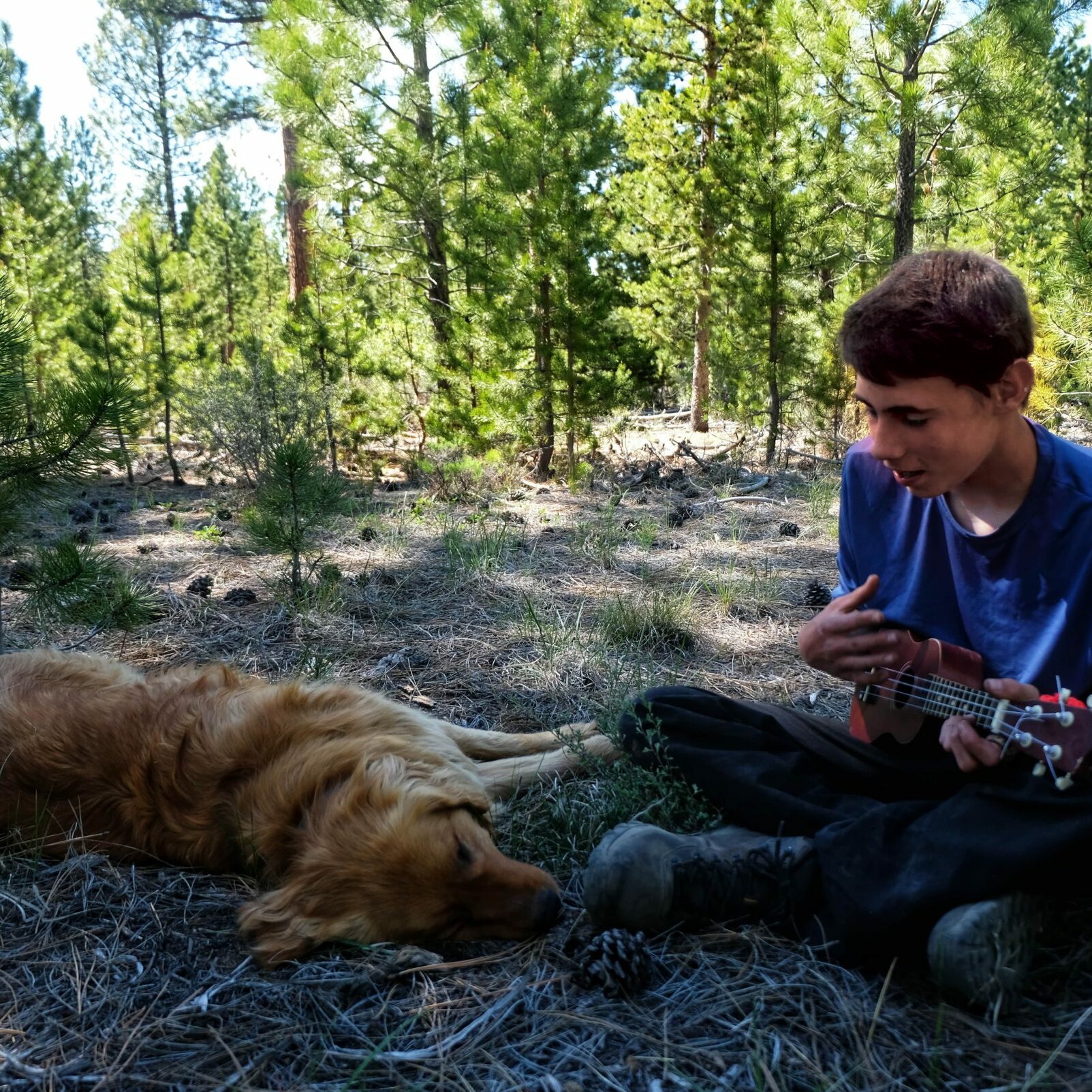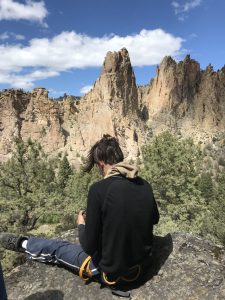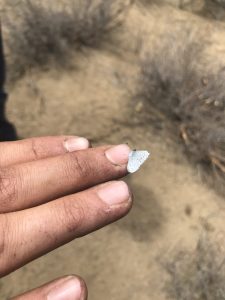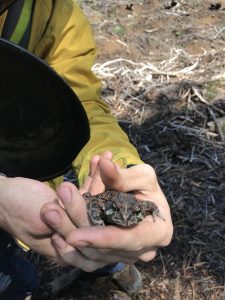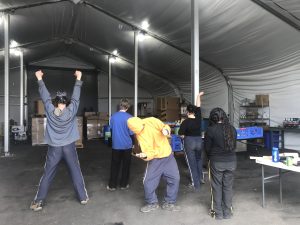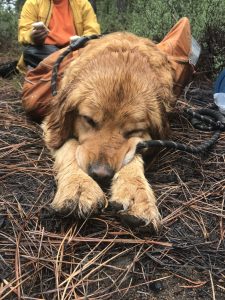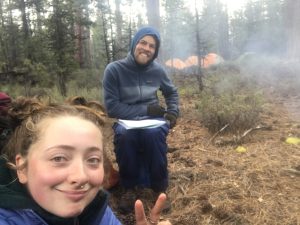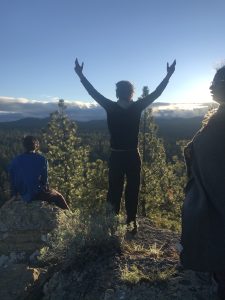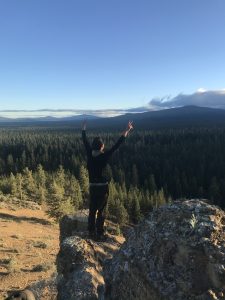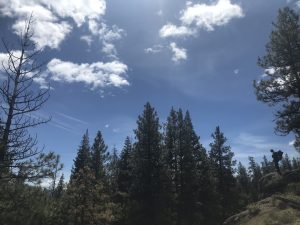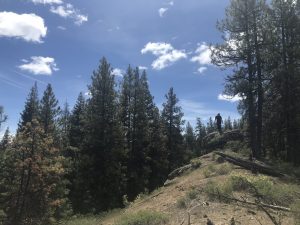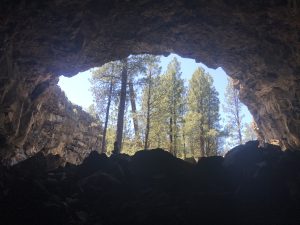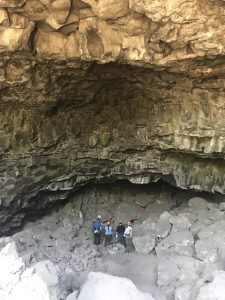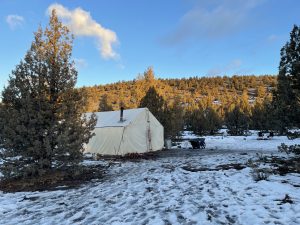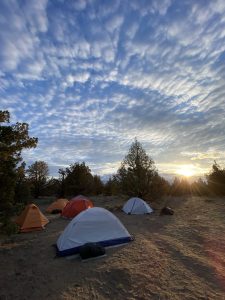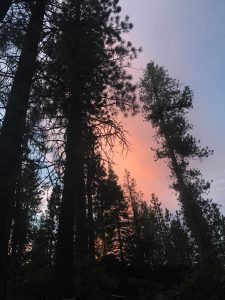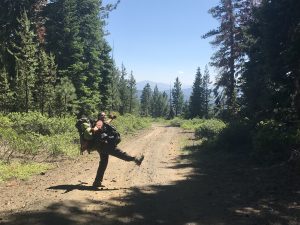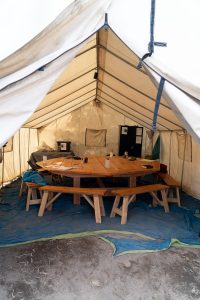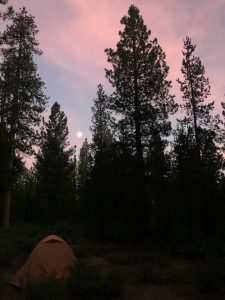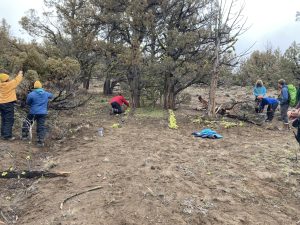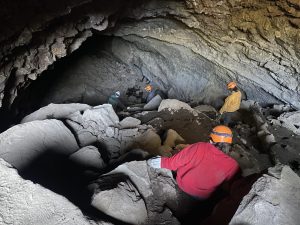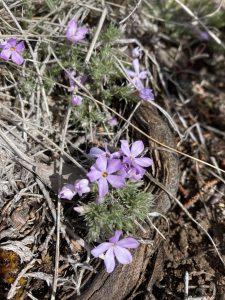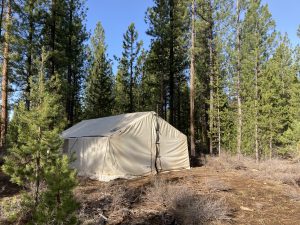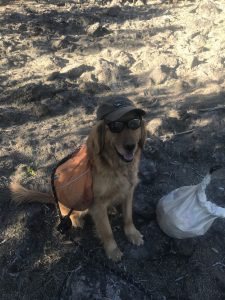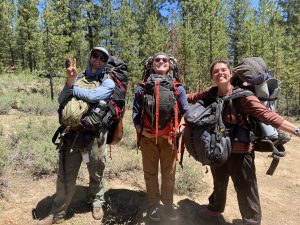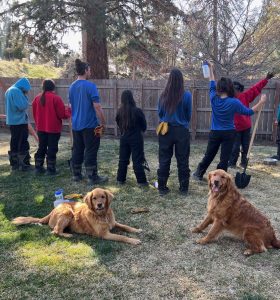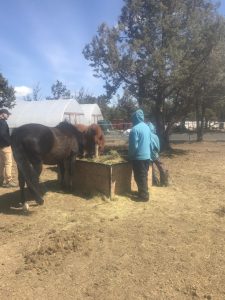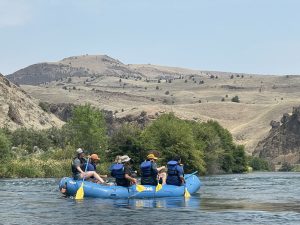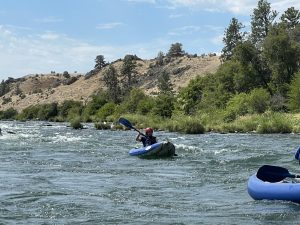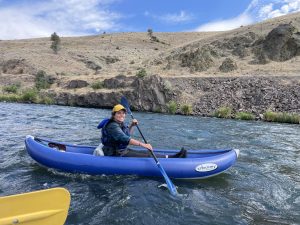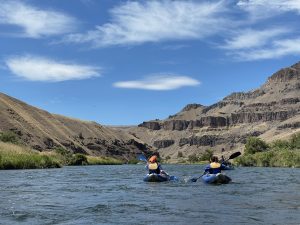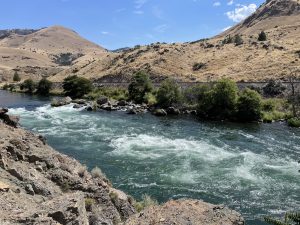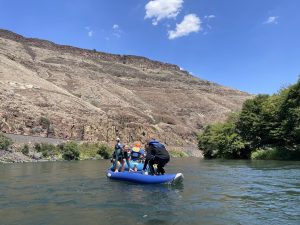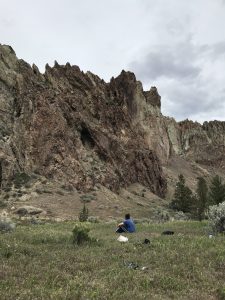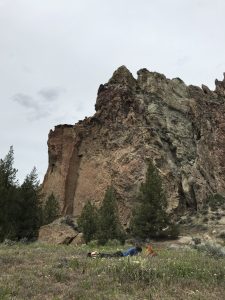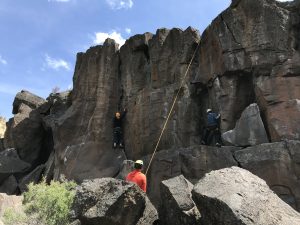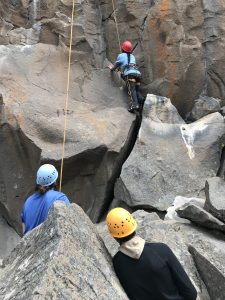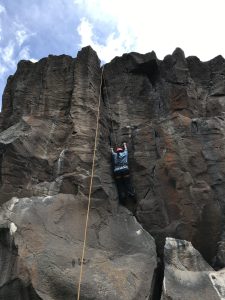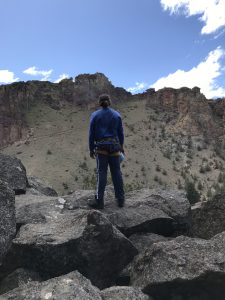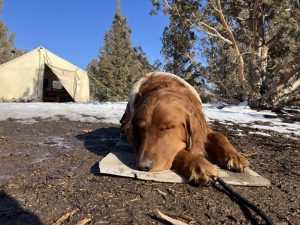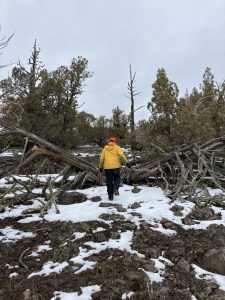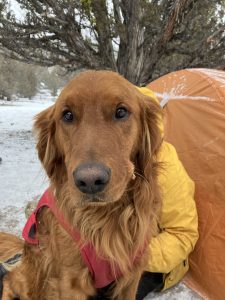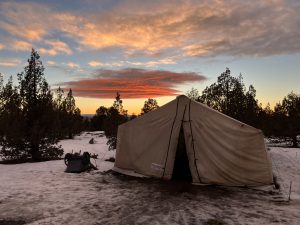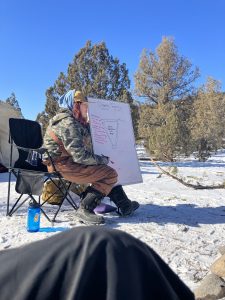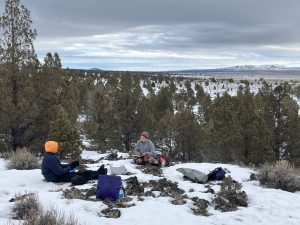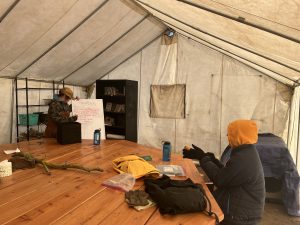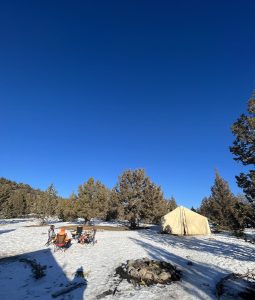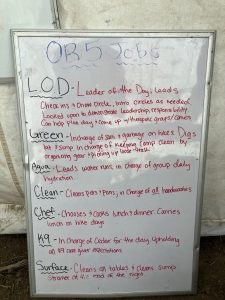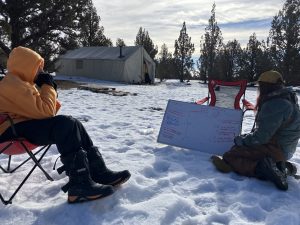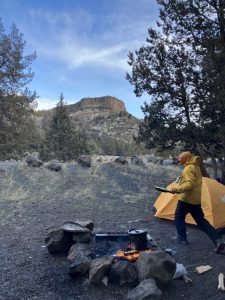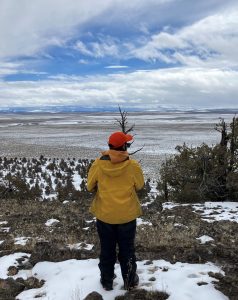Our Unique Approach
Deschutes Wilderness Therapy sets itself apart through clinical intensity, intensive family programming, and brain-based somatic interventions.
Some key differentiators for emerging adults are designed to get the student a healthier path. These include:
1
Clinical Intensity: DYA offers intentional, highly individualized clinical interventions and purpose-driven experiential therapies that are integral to the healing process. Young adults engage in a combination of individual therapy, psychotherapy group sessions, psychoeducation groups, and family therapy multiple times a week.
2
Community Focus: DYA establishes and supports an environment that builds community and healthy connections. The base camp serves as the wilderness home for the young adult community; the hard-walled tents provide a backcountry kitchen and library setting where young adults find warmth in the winter months, work on their art and therapeutic projects, create meals, and eat together, gather for group therapy, and more. Through structures and experiential activities to support community building, young adults fully realize and invest in building a sense of human connection within a physical community space.
3
Length of Stay: The approximate length of stay in the DYA program is 60 days. The length of stay is highly individualized and based on a few key components: (a) the ability to manage themselves in a more fast-paced and complex social environment without dysregulation or unhealthy coping mechanisms (b) the ability to participate in a healthy community of others; and (c) readiness to begin to transition into the demands of young adult life (i.e., getting their life back on track)
Clinical Intensity
"The cave you fear to enter holds the treasure you seek." - Joseph Campbell
At the core of the Deschutes Young Adult program is a highly individualized and intensive therapeutic journey. To regain a sense of purpose and control of their lives and get back on a healthier path to transition successfully out of the wilderness milieu as efficiently as possible young adults engage in intensive therapy five days a week.
Each young adult's treatment plan comprises a combination of clinical interventions, including individual, group psychotherapy, group psychoeducational, and family therapy, where they learn about themselves, their family system, and how to step back into the world with a new understanding of what drives them. DYA utilizes the wilderness environment to increase introspection and connection to nature, which in turn helps create insight and clarity. Immersion in nature enables the removal of distractions like modern-day technology and allows for genuine human connection and communal healing. Highly individualized reflective growth assignments that align with therapeutic goals are critical to the process. Both the young adult and their family actively engage in therapy with families participating in family therapy every week, completing assignments, participating in parent forums, and individualized parent coaching.
At Deschutes Young Adults, therapy doesn’t end when a therapy session concludes. There is therapeutic intention in every aspect of a young adult’s day - whether it's an adventure trip, building a primitive structure, or preparing a hearty meal - where seemingly mundane activities provide the opportunity for growth, exciting accomplishments, and meaningful connections.
Get Your Life Back on Track
Deschutes Young Adults supports individuals seeking to regain their mental health, create a new path forward, and transform their current trajectory in life. Young adults come to Deschutes with a desire to engage in challenging work and take a deep dive into their roots, behaviors, and mental health struggles that are obstacles to fulfilling their vision of success.
At Deschutes Young Adults, you will go on a journey of self-exploration. This process includes intensive therapy five days a week and immersive therapeutic projects and assignments designed to help you get to the root of the things that inform how you see yourself and how you move through the world. You will uncover long-held trauma, pain, and unresolved issues contributing to a cycle of protective mechanisms and survival behaviors. With the compassionate support of highly experienced licensed therapists and mentors, you will unravel years of trauma and pain, letting go of unhealthy behaviors and patterns while discovering new ways to manage and experience your emotional self, engage with family and friends, and find your path forward in life.
While at DWT, you will utilize the gift of being in the wilderness to slow down life's pace, reflect on your life, and learn new skills to sustain yourself in the fast-paced, highly complex world. Our goal at Deschutes Young Adult is to get you out of treatment and into the beautiful future you are capable of. You will experience the value of the pacing and support of the wilderness environment to cultivate healthy behaviors, find purpose, and begin to heal. Upon transitioning out of Deschutes Wilderness, you will either move onto a transition program to continue the journey you initiated at Deschutes with wrap-around support or move on with your life as an independent adult.
Top 5 Highlights of DYA
1
An intensive and immersive clinical experience designed to help young adults dig deep to uncover and begin to heal the roots of their problems and learn healthier ways to manage themselves and engage with others.
2
The basecamp model provides an environment for learning and added responsibility. Having a basecamp model allows us to mimic life outside of the woods. With a full kitchen and productive workspaces, students learn how to cook, clean, organize and care for shared spaces. Our students are poised to transfer these skills to life outside the woods. Basecamp has two wall tents. The group wall tent houses a large table that sits 16, a library with therapeutic resources, art supplies, instruments, games, and materials for teaching (whiteboard, dry-erase markers). This wall tent serves as a space to eat meals together, discuss therapeutic topics, and provide intentional workspace time. The kitchen wall tent houses a 3-burner stove, cooler, dry bins, cookware, dishware, and cleaning supplies. Each tent has a fire-burning stove for warmth. The basecamp serves as the centerpiece of our focus on community and being a healthy member of community.
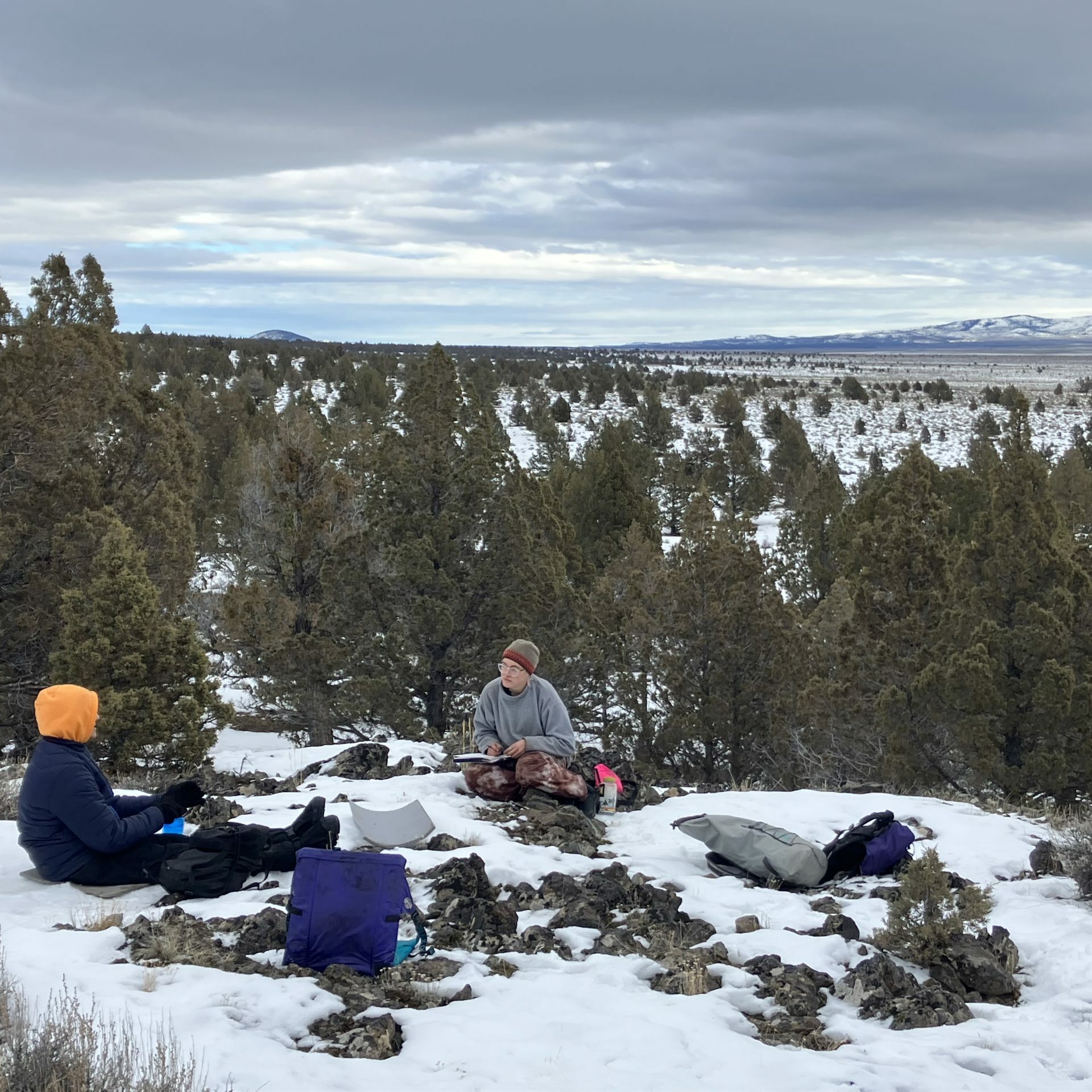
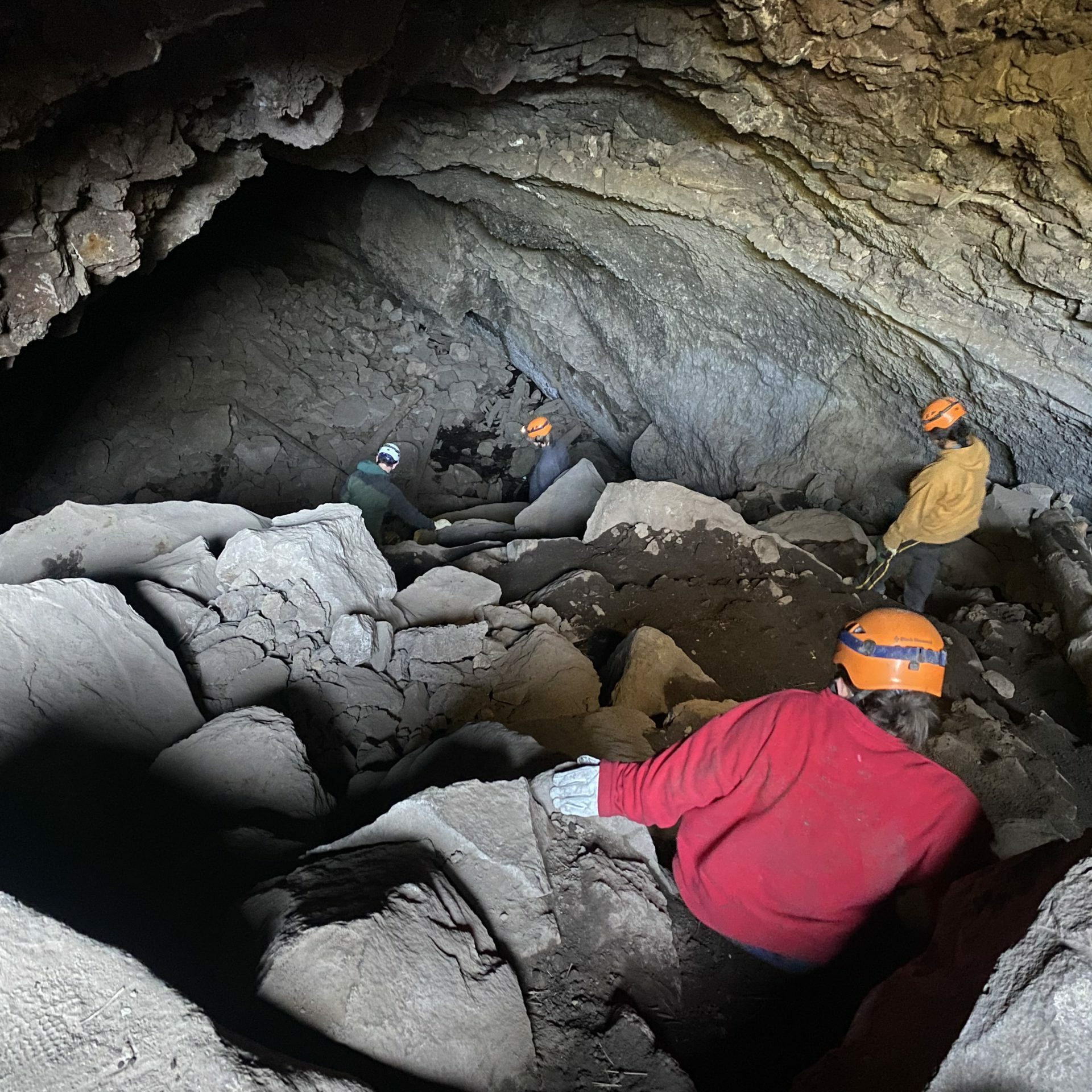
3
Each student and their family have a team of three clinicians working with them. First, students have a primary therapist for individual, group, and family therapy. In addition, a field therapist provides supporting group therapies, point-of-performance interventions, and additional individual sessions often focused on interpersonal somatic work. And importantly, a family therapist working with the parents focuses on their therapeutic process outside their child's experience.
4
Dual diagnosis: A unique attachment and trauma approach to addictions. DYA utilizes the attachment cycle and activation arc to develop insight into how this relates to how substances meet their needs and then work to shift those patterns of reliance. Utilizing body-based work, somatic therapy supplements the addiction work and makes it more effective. Somatic therapy helps clients be more aware of themselves and their person. The 12-step model can support a different lifestyle while doing deep trauma and attachment work to address the roots of their addiction. Where does addiction come from? How do trauma and shame feed and grow addiction patterns? The typical approach to addiction work is a more direct, confrontational manner. The attachment approach is new, but the research suggests better and more sustainable outcomes. By exploring the family's role in addiction treatment and how family therapy engagement impacts success in addiction treatment, we can form a compassionate alliance to heal together.
5
Diverse talent development and engagement opportunities: Students engage in adventure activities, intensive service work, and weekly young adult skill development workshops. Activities include rock climbing, caving, whitewater rafting, canoeing, backpacking, building a house with Habitat for Humanity, working with local environmental nonprofits, cooking and nutrition classes, and equine therapy.
Deschutes Young Adult Overview
Testimonials
Admissions Process:
At Deschutes Wilderness Therapy your child is most important. To better determine if our services can serve you appropriately, please contact us at 541-640-7184 or email us at admissions@DWTbend.com.
DWT has the ability to enroll students year round, every day of the week, and depending on scheduling. We will do our best to accommodate your needs.
Start moving forward by speaking to a member of our experienced and compassionate admissions team by calling 541-640-7184 or email us at admissions@DWTbend.com.
